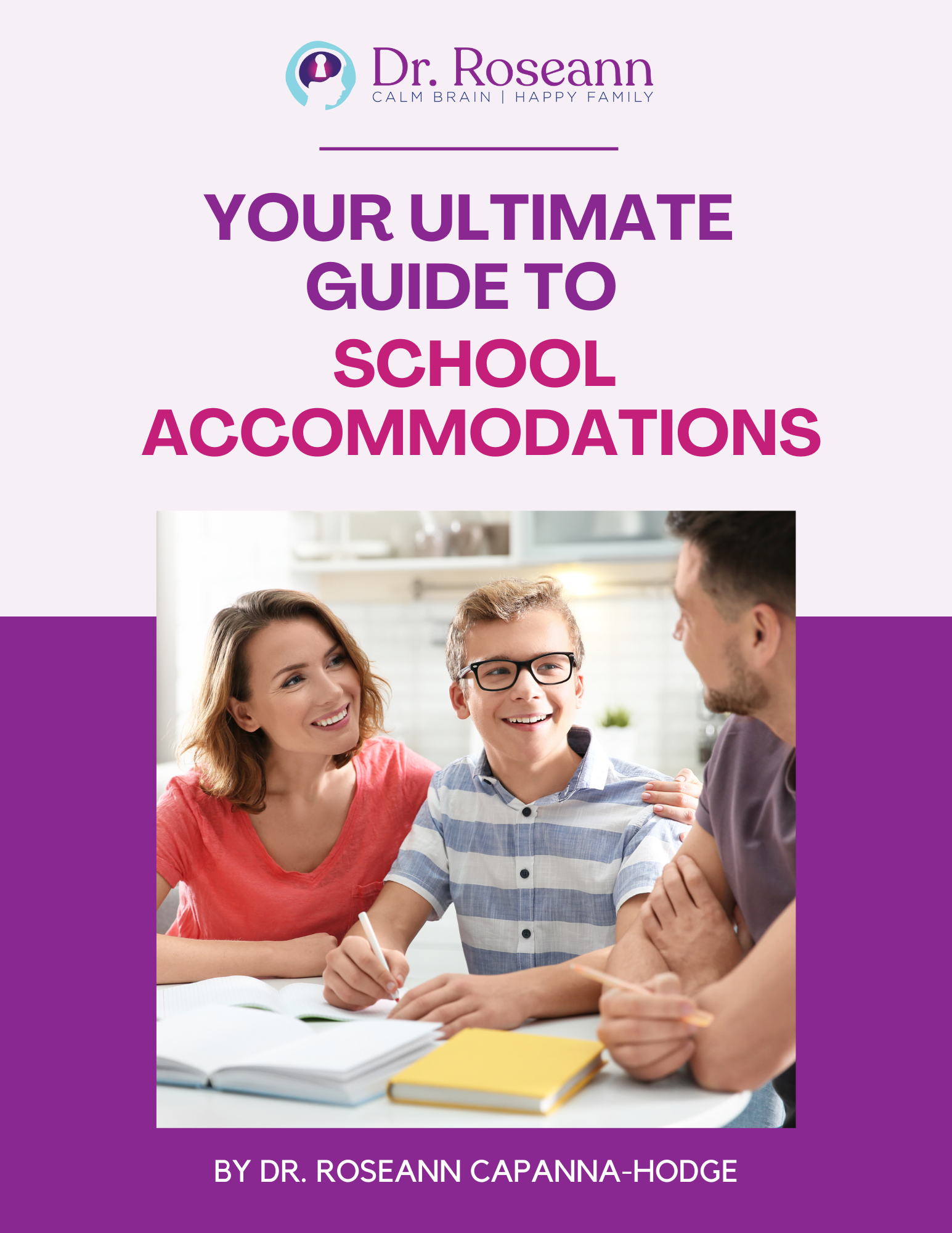Many parents get confused between 504 plans and an Individualized Education Program (IEP) when it comes to getting support for their kids. The confusion is understandable as both plans aim to accommodate those with disabilities and provide them with more opportunities and services.
Let's dive into how school interventions can help kids with ADHD and other disabilities. We'll be joined by Vickie and Amanda, both attorneys and advocates of having a more inclusive place through the Inclusive Education Project.
Vickie and Amanda’s background in special education
Vickie and Amanda are the perfect fit to answer the frequently asked questions about 504 and IEP, as they have been attorneys for more than 10 years in special education.
Vickie grew up seeing what IEP was like since she has a cousin who is on the spectrum and went through IEP. Initially, she envisioned herself being in the environmental law field but then realized that she liked working with parents at the clinic. So, being a year ahead of Amanda, she waited for the latter to graduate to start a new chapter together.
As for Amanda, she likes working with kids with special needs all her life. She has been serving as a voice for those who cannot speak for themselves and to fight for the rights of all children. She always emphasizes the need for children to be nurtured and valued.
Vickie and Amanda didn't like how the legal system works. However, they wanted to provide more than just legal services to the public, so they started a podcast to educate families, administrators, teachers, and just everyone in the community.
The difference between a 504 plan and an IEP.
Unfortunately, there are still schools that are not yet fully informed about the difference between a 504 plan and an IEP. Vickie and Amanda gave a precise explanation as regards the two.
In order for you to qualify for the benefits of Section 504 of the Rehabilitation Act, your kid must (1) have a physical or mental impairment that substantially limits one or more major life activities; or (2) have a record of such an impairment; or (3) be regarded as having such an impairment.
As for IEP, a child must have a disability and need special education. The Individuals with Disabilities Education Act (IDEA) sets forth the parameters for IEP to provide better services and opportunities as regards special education.
If your child needs physical support in order to access the learning environment, you should be getting a 504 plan. On the other hand, if we’re talking about actual and direct services or supports that are going to help the substantive nature of learning, those need to be done in an IEP.
When we talk about education, we're not just referring to academics but also vocational skills, including daily living skills and social and emotional skills. So there is really a need for a formal assessment.
If a child is diagnosed with ADHD, are they automatically entitled to a 504?
No, you don't just get a 504 automatically, as there are eligibility requirements followed for Section 504 of the Rehabilitation Act. However, if you have a doctor's diagnosis, you can bring it with you.
Assessments are also necessary for parents to know which 504 or IEP plan is appropriate for their kid. It needs to be rooted in more than a piece of information. How they behave or function in and out of the classroom is also considered.
The importance of putting everything in writing
It greatly helps to have everything in writing because you never know when you might need support. When you have conversations with others, try writing them down as notes. It’s similar to having a paper trail when it comes to work.
If you're requesting support for your kid, the school team can assist you. The school team should help you put what you want in writing and provide it to the right people so that an assessment can be done. Unfortunately, only a few people in a school district are trained for that.
That’s why under the IDEA, there’s a salient provision called ‘Child Find’ which provides that schools must find and evaluate students who may have disabilities without cost to the families.
You also have to remember that not everyone who works in school would understand what ADHD, dyslexia, anxiety, or other mental health issues are. That's why you must be the CEO of your child's overall health and wellness.
When do parents need to look at IEP and 504 if they have a child with ADHD or other mental health issue/s?
There's a misnomer that when a kid needs a little help, they should go for 504 and switch to IEP if things get worse. More often than not, if a child qualifies for one of the two, they may also be eligible for the other one.
It's vital to undergo a formal assessment first. That would help you better understand if you're eligible for IEP or 504. In addition, there's more accountability when it comes to IEP as it has more strict regulations and requirements for the timelines when things need to be accomplished.
With respect to the timeline, the school district has to act on these things accordingly and in time. They have the obligation to act fairly and quickly. However, as parents, you also have to keep track of these things.
It's also important to tell them during the first meeting that you want a report and follow up expressly because you must be prepared for it. Even though no hard and fast rule says that a school district has to give the reports in advance, the law provides that as a parent, you have the right to be a meaningful participant in the IEP process.
Being a meaningful participant in the IEP process means being informed of your child's education. Therefore, getting the necessary documents is essential to prepare for the IEP process.
What should you do in advance if you’re planning an IEP meeting?
A helpful tip from Vickie and Amanda for when you plan on having an IEP meeting in advance to ask for documents is to bring someone with you. Having someone with you will help you absorb the information better.
You can also ask to record the meeting to avoid writing down notes. Additionally, if one meeting is not enough and you have more questions, you can ask if they're available to schedule another meeting because you have a right to questions.
You can read books or blogs and even listen to podcasts about these things but it would be best to have somebody to give you direct advice on your case.
One organization that Vickie and Amanda are a part of is the Council of Parent Attorneys and Advocates, Inc. where they help protect the rights of students with disabilities and aid them with their special education.
However, it should be noted that every district, state, and country is different, so the approach for each area will be different.
If you want to learn more about Vickie and Amanda's Inclusive Education Project, you can check out their website through this link:https://www.inclusiveeducationproject.org/. They also have a weekly Q&A on their Instagram account (@inclusiveeducationproject) in case you have any inquiries.
Links and Resources:

Become Your Child’s Best Advocate!
Download The Ultimate Guide to School Accommodations
Have you been searching the internet for the right school accommodations for your kid and still don’t know what to ask for? Well, look no further. We have created this guide just for you…and it's FREE!
➡️ Join our FREE Natural Parenting Community to receive science-backed resources for your child and family. Join here.
➡️ Get help from Dr. Roseann and her team. Apply here.
➡️ “Is it ADHD or something else?” Take the quiz.








